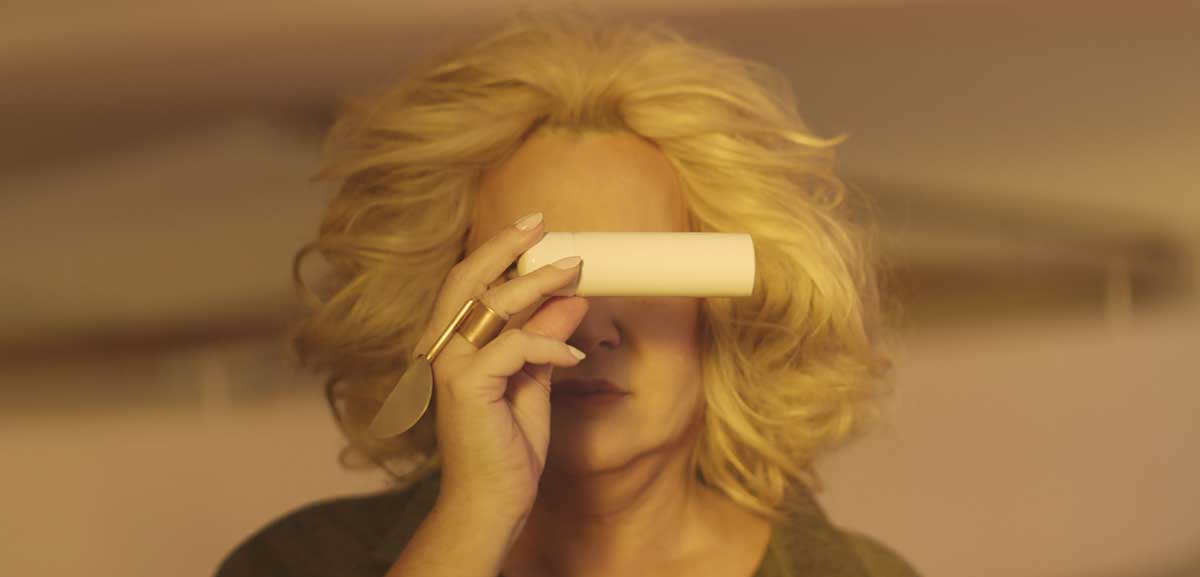
Frame from HEAVEN, 2016
Whereas conservatism grows and incites prejudice based on race, class, and gender, the future is strengthened as a recurring place in Luiz Roque’s work. Not because the artist wants to omit himself from the present or exercise progress as a way of erasing the past. When he projects what life will be in thirty to sixty years, he searches for that which traverses time as hope, promise, and possibility. At the boundary between catastrophe and redemption – two recurring narrative structures in his cinematographic language – Roque creates films that express the unfinished and cyclical nature of social disputes in history. At the 32nd Bienal, the artist presents HEAVEN (2016), which takes place during the second half of the 21st century, when news of an epidemic of unknown origin causes health agencies to hypothesize over the possibility of a virus transmitted through the saliva of transsexuals. The premature choice of suspects repeats the prejudiced and accusatory rhetoric of anti-AIDS campaigns in the 1980s. Thus, fears persist in this view of the future, as well as an eloquence applied to make people believe in something. Science fiction fascinates precisely because of its assertions.
